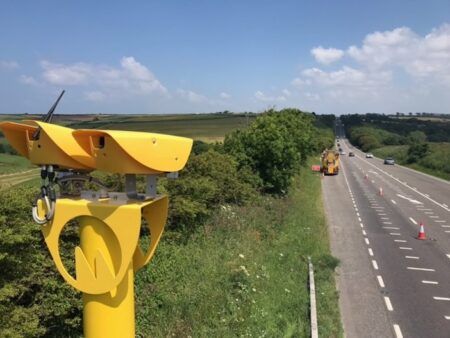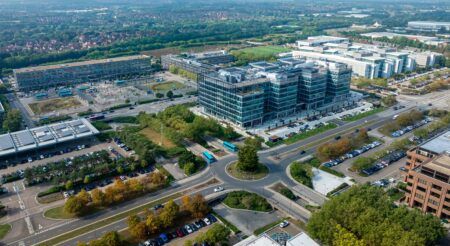TRL Software has launched SCOOT 8 AI, the world’s first AI-powered urban traffic control system capable of predicting and preventing congestion up to 30 minutes in advance.
Building on five decades of SCOOT development, this latest generation marks a transformative step in traffic management by combining adaptive signal control with cutting-edge predictive AI, TRL noted.
The new platform enables cities to move from reactive responses to proactive optimization, offering journey-time reductions of up to 15% over current-generation systems, and even greater gains for those upgrading from earlier SCOOT versions.
SCOOT 8 AI uses self-optimizing algorithms and real-time data to forecast network demand, automatically adjusting signal timings to improve traffic flow, cut delays, and reduce incident response times. The AI’s built-in anomaly detection feature can identify disruptions up to 40% faster than traditional systems, often before emergency services are alerted.
The platform is hardware-agnostic, meaning it integrates with existing infrastructure and protects previous investment. It also adds future-ready capabilities, including support for connected and AVs, as well as active travel initiatives.
Cities can track performance through real-time dashboards and integrate the system with third-party platforms such as Waze for Cities. This data-driven approach provides continuous optimization and a measurable return on investment, which TRL says can typically be achieved within 12 months.
SCOOT (Split Cycle Offset Optimisation Technique) has been deployed in more than 350 cities globally and is widely recognized as the benchmark in adaptive traffic control. The introduction of AI takes the system to a new level of intelligence, enabling authorities to act before congestion builds, rather than reacting to it.
TRL Software is the exclusive developer and supplier of SCOOT 8 AI, offering full support and ongoing innovation.
Christopher Kettell, chief technologist at TRL Software, said, “SCOOT 8 AI represents a fundamental shift in how cities manage traffic. By combining our proven adaptive control with predictive AI, we are not just responding to congestion, we are preventing it.”





